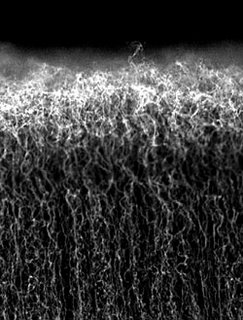
So what does this cryptic title mean? I found an article on capacitors and discovered that people are actually working on making a better battery or electrical energy storage device and the key may be nanofibers.
Take a look at this article on using nanofibers and capacitors. With capacitors, increasing the surface area of storage plates increases the amount of electrons or electrical energy that the average capacitor can hold.
The problem with the traditional capacitor is the surface area problem as stated here: "But capacitors contain energy as an electric field of charged particles created by two metal electrodes. Capacitors charge faster and last longer than normal batteries. The problem is that storage capacity is proportional to the surface area of the battery's electrodes, so even today's most powerful capacitors hold 25 times less energy than similarly sized standard chemical batteries."
If this technology can get off the ground, then it will be environmentally friendly because capacitors don't degrade over time so they last virtually forever, and they charge very quickly.
"It's better for the environment, because it allows the user to not worry about replacing his battery," he says. "It can be discharged and charged hundreds of thousands of times, essentially lasting longer than the life of the equipment with which it is associated."
So one more step towards making a better hybrid or electric car.



